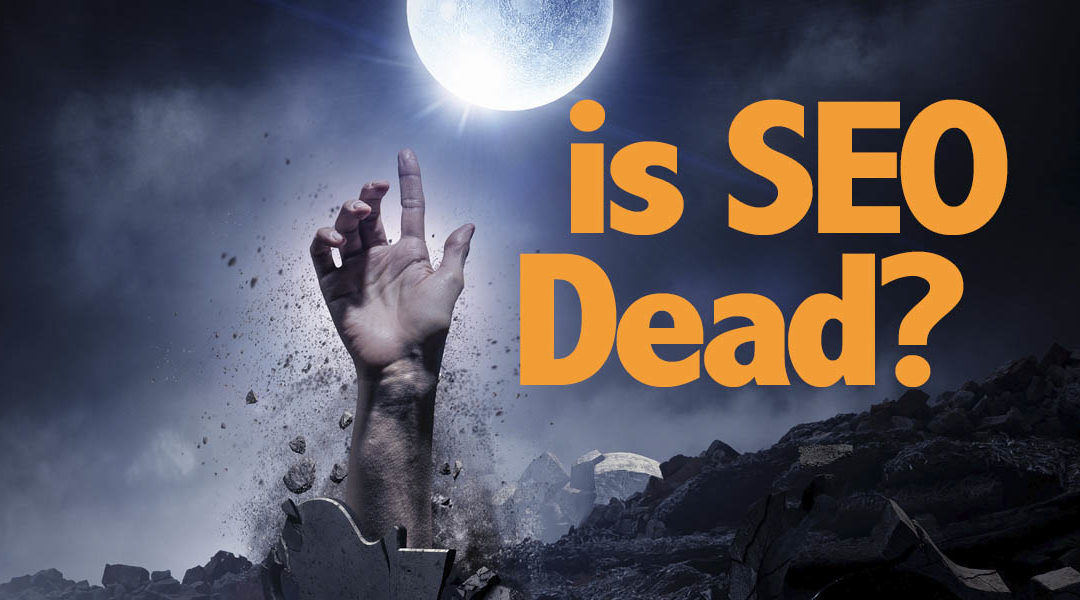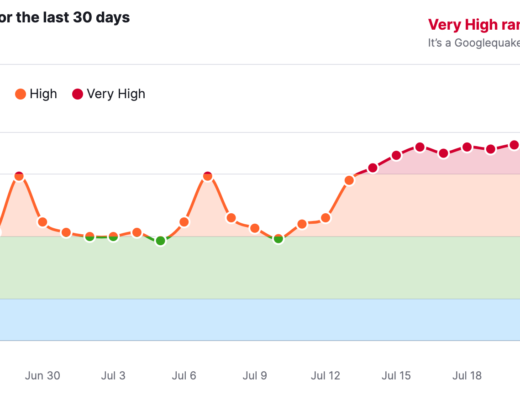Have you ever heard someone say that SEO is dead?
Lots of marketers get it wrong, thinking SEO is no longer relevant. But, the thing is SEO is still alive.
In fact, it’s more important than ever for businesses to have a strong online presence in today’s digital age.
However, the SEO landscape has certainly changed over the years, and what worked in the past may not work anymore.
So, is SEO dead?
The answer is both yes and no.
In this article, we’ll explore the reasons why SEO is still relevant and how it has evolved over time.
The Death Of SEO: Fact Or Fiction? Understanding The Realities Of Today’s Digital Landscape
Nowadays, many digital marketers argue that SEO is dead. And, they are pointing to several factors to support their claims.
One of the primary reasons is the increased competition for top spots on SERPs.
With more and more businesses investing in SEO, it’s becoming harder to rank higher on Google search results.
Moreover, changes in Google’s algorithms have made it more challenging to achieve top rankings.
Google’s algorithms have evolved to provide more relevant results to users. This favors websites that offer high-quality content and a positive user experience.
As a result, businesses that rely on outdated SEO tactics may find themselves falling behind their competitors.
Lastly, the rise of social media and other digital marketing channels has led some to believe that SEO is no longer necessary.
Social media platforms like Facebook and Twitter offer businesses the ability to connect with their audience and drive traffic to their sites without relying on SEO.
SEO Is Alive
Despite the arguments against SEO, there is ample evidence to suggest that SEO is still very much alive.
For one, organic search traffic is still a vital source of website traffic for many businesses.
A study by BrightEdge found that organic search traffic accounted for over 50% of website traffic for most industries.
Additionally, SEO strategies have evolved to keep pace with changes in Google’s algorithms.
Modern SEO tactics prioritize creating high-quality content that satisfies user intent and provides value to the reader.
This approach is more effective than trying to game the system with outdated tactics like keyword stuffing or link farming.
Lastly, businesses are still investing in SEO.
In 2023, spending on SEO is expected to reach billions globally, a testament to the continued importance of SEO in digital marketing.
Why SEO Is Both Dead And Alive?
The reality is that SEO is neither dead nor alive; it’s constantly evolving.
So, here businesses need to adapt to the changing landscape of digital marketing. Also, they have to balance SEO with other marketing channels like social media, paid advertising, and email marketing.
The importance of a comprehensive marketing strategy cannot be overstated.
Businesses that focus solely on SEO may miss out on opportunities to reach their audience through other channels.
Similarly, businesses that ignore SEO may miss out on a valuable source of website traffic.
SEO Isn’t Dying, It’s Just Changing: What You Need To Know?
If you think SEO is dying, think again.
Although there have been significant changes in the digital landscape over the years, SEO still plays a crucial role in helping brands succeed.
To dominate search engine results pages (SERPs), it’s important to keep certain things in mind when developing campaigns.
Google Focus User-Experience
Google prioritizes user experience over backlinks or keyword density. The content of a site and how users can benefit from it are what matters most. If a site has thousands of backlinks but users of that website hate it, then it won’t rank well.
Social Media Impact
Secondly, Google doesn’t solely rely on its dataset. It looks at other spots online such as social media to improve results. Why because, nowadays, younger audiences use social media or videos more for discovery. So, Google may continue to update and adapt to meet user needs.
Branded Search Volume
Third, branded search volume is essential as Google favors well-established brands.
As your brand grows and becomes more recognizable through branded keywords, then the search volumes increase accordingly. This will help your rankings climb as well.
Niche Focus
Fourth, focusing on a niche helps position yourself as an expert in the industry. Topic-specific sites tend to do better with Google than general ones covering multiple areas since users want specialized information rather than broad topics.
Personalization
Personalization is more important now. We are all unique and have our own preferences when we search online. We want search results tailored to our location and previous searches. Google takes this into account when showing us results.
So, focusing on personalization can help improve the user experience while ranking better in the long run.
User Intent
Finally, the intent is critical when trying to satisfy user needs. And, you have to fulfill their searches precisely using appropriate keywords that match their queries. Like,
- Transactional (planning to make a purchase),
- Informational (seeking information on the topic),
- Navigational (locating specific webpage),
- Commercial investigation (narrowing down purchase options).
Understanding user intent is the key to creating successful SEO campaigns.




